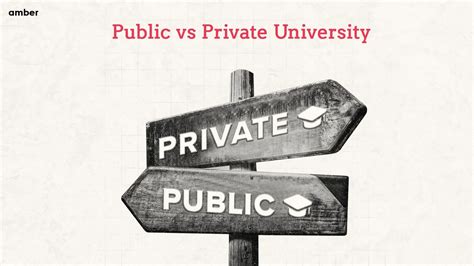Introduction

The decision between attending a public or private college is a pivotal one that can significantly shape one’s academic and professional trajectory. While both offer unique advantages and disadvantages, understanding their fundamental differences is crucial to make an informed choice. This comprehensive guide delves into the key distinctions between these two types of institutions.
Public Colleges: The Cornerstone of Accessibility and Affordability
1. Accessibility and Inclusivity
Public colleges prioritize accessibility, offering a wide range of admission options and financial aid programs to cater to students from diverse backgrounds. With lower tuition fees than their private counterparts, they make higher education more attainable for a broader population.
2. Generous Financial Aid
- According to the College Board, public colleges awarded $27.3 billion in federal grants and scholarships to over 11 million students in 2021-2022.
3. State Support and Local Connections
- Public colleges benefit from significant state funding, which translates into competitive academic programs and facilities.
- They foster strong ties with local communities, providing opportunities for internships and research collaborations.
Private Colleges: Exclusivity, Prestige, and Personalized Education
1. Selectivity and Prestige
Private colleges are highly selective in their admissions process, attracting top-tier students from across the globe. This exclusivity contributes to their reputation and prestige, opening doors to competitive graduate schools and career paths.
2. Personalized Education and Faculty Expertise
- Private colleges typically have smaller class sizes and lower student-to-faculty ratios, allowing for personalized attention and close mentorship.
- Faculty members often conduct cutting-edge research, offering students unique opportunities for intellectual engagement.
3. Extensive Resources and Amenities
- Private colleges invest heavily in state-of-the-art facilities, libraries, and research laboratories, providing students with access to exceptional resources.
Comparing Public and Private Colleges: A Tabular Overview
| Feature | Public College | Private College |
|---|---|---|
| Tuition Fees | Typically lower | Typically higher |
| Accessibility | More accessible to a wider range of students | More selective in admissions |
| Financial Aid | More generous financial aid options | May offer limited financial aid |
| Faculty | Generally larger class sizes | Smaller class sizes and lower student-to-faculty ratios |
| Research and Innovation | May emphasize applied research and community engagement | Focus on theoretical and cutting-edge research |
| Community Involvement | Strong ties with local community | Strong alumni networks and global outreach |
Considerations for Choosing Between Public and Private Colleges
Student Profile:
- Public colleges are a good fit for students seeking affordability, accessibility, and a diverse student body.
- Private colleges are ideal for students seeking prestige, personalized education, and extensive resources.
Major and Career Goals:
- Consider the academic programs and faculty expertise of each college in alignment with your major and career aspirations.
Financial Situation:
- Calculate the total cost of attendance, including tuition, fees, room and board, and factor in financial aid options.
Personal Preferences:
- Consider campus size, location, student culture, and extracurricular activities to find the best fit for your individual interests and goals.
Frequently Asked Questions
1. Which type of college offers better job prospects?
Both public and private colleges can provide excellent job prospects, but the prestige and alumni networks of private colleges may give graduates an edge in competitive fields.
2. Do private colleges provide more personalized attention?
Yes, private colleges generally offer smaller class sizes and lower student-to-faculty ratios, allowing for closer mentorship and more individualized support.
3. Are public colleges more affordable?
Typically, public colleges have lower tuition fees than private colleges and offer more generous financial aid packages.
4. Is the location of a college important?
Location can play a role in factors such as housing costs, access to internships, and the overall college experience.
5. Can I transfer from a public to a private college or vice versa?
Yes, it is possible to transfer between public and private colleges, but the specific requirements and transfer policies vary.
6. Is it worth paying more for a private college?
The value of a private college education depends on individual circumstances and goals. Consider the potential return on investment, taking into account the cost of attendance, reputation, and career prospects.
Conclusion
The choice between a public or private college is a multifaceted one, requiring careful consideration of individual needs and priorities. By understanding the key differences between these two types of institutions, prospective students can make informed decisions that will set them on the path to success. Remember, the best college for you is the one that aligns with your academic aspirations, financial situation, and personal preferences. Embrace the journey of exploration and discovery as you navigate this important milestone in your life.
